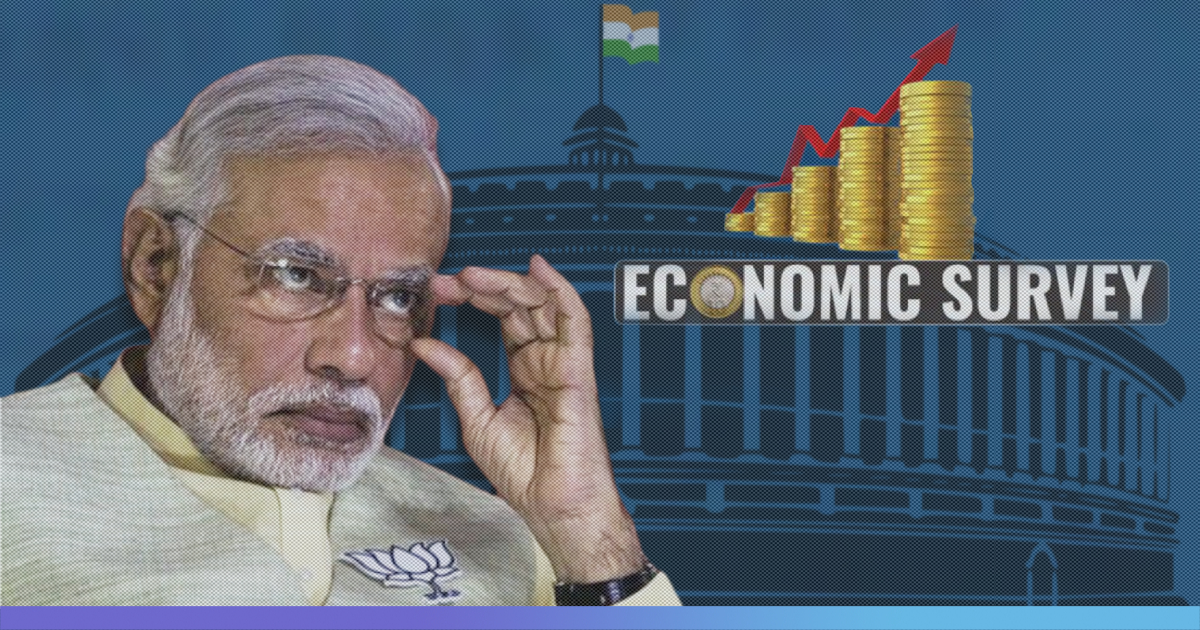Guided by ‘Blue Sky Thinking’, Finance Minister Nirmala Sitharaman tabled the Economic Survey 2018-19, prepared by Chief Economic Advisor Krishnamurthy Subramanian in the Parliament, a day before presenting the Union Budget.
The survey predicts a 7 per cent growth in the GDP for the financial year 2019-20, higher private investment and robust consumption. The central vision of Economic Survey 2019 is to help India grow into a 5 trillion economy by 2024-25.
Major Focus Areas
“An effective minimum wage policy that targets the vulnerable bottom rung of wage earners can help in driving up aggregate demand and building and strengthening the middle class,” Chief Economic Adviser Krishnamurthy Subramanian said.
He also mentioned that “one of the biggest hurdles to a $5 trillion economy is poor enforcement of contracts and dispute resolution. Steps to speed up the legal process should be the top priority.”
“With the aspirations that have been kindled among our predominantly young population, India stands at a historical moment when sustained high economic growth has become a national imperative,” Subramanian added.
One of the biggest hurdles to #Economy5trillion is poor enforcement of contracts and dispute resolution. Steps to speed up legal process should be top priority. #EcoSurvey2019 shows that required efficiency gains & appointments are large but achievable 5/5
— K V Subramanian (@SubramanianKri) July 4, 2019
The #EconomicSurvey2019 outlines a vision to achieve a $5 Trillion economy.
It also depicts the gains from advancement in the social sector, adoption of technology and energy security.
Do read!https://t.co/CZHNOcO7GV
— Narendra Modi (@narendramodi) July 4, 2019
Economic Survey 2019: Key Highlights
- FY20 GDP growth at 7%, higher growth on stables macros
- India needs to grow at 8% per year to be a $5 trillion economy by FY25
- The survey suggests diplomatic type privileges, naming roads for top taxpayers
- The survey encourages an investment-driven “virtuous cycle” to sustain growth at 8%
- Investment the “key driver” of simultaneous growth in demand, jobs, exports & productivity
- Poor enforcement of contracts and dispute resolution is a big hurdle. A faster legal process should be the top priority
- Savings & growth are positively co-related. Savings must increase more than investment
- MSMEs need to be seen as a source of innovation, growth and job creation
- India moving towards Swachch Bharat to Swasth and Sundar Bharat
- Government policies are expected to further lift restrictions on FDI
- Oil prices expected to decline in FY20
- Accommodative MPC policy to help cut real lending rates
- Slow growth, GST and farm schemes may pose challenges on the fiscal front
- Lower global growth and increased uncertainty over trade tensions may hit exports
- Electric vehicles (EVs) hold enormous potential and India can emerge as a manufacturing hub












